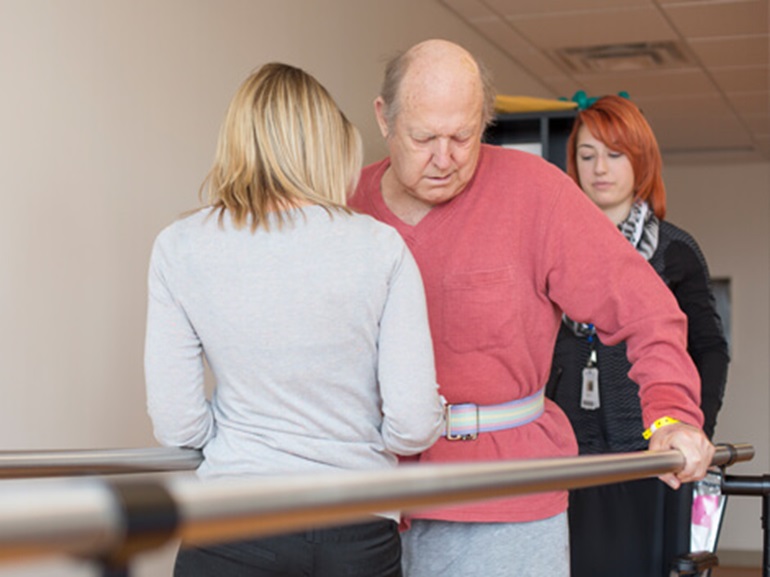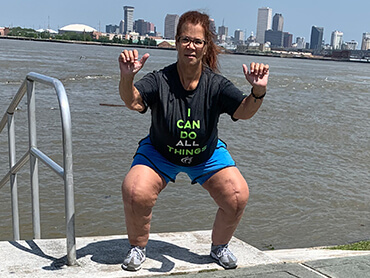Orthopedic Rehabilitation
Getting you moving again

The OhioHealth Rehabilitation Hospital Difference
Where a person goes for treatment can make all the difference in recovery. Studies1 show those treated in a specialized rehabilitation hospital – like OhioHealth Rehabilitation Hospital – have greater improvement, fewer complications and return home sooner than patients at nursing facilities. We provide a comprehensive program of medical, nursing and therapy care.
1Assessment of Patient Outcomes of Rehabilitative Care Provided in Inpatient Rehabilitation Facilities (IRFs) and After Discharge. Dobson DaVanzo & Associates, LLC. 2014
-
OhioHealth Rehabilitation Hospital draws on the expertise of medical rehabilitation specialists to address the range of physical and functional issues that occur following injury, joint replacement or other bone-related conditions.
This interdisciplinary team is led by a physiatrist, a physician board-certified in physical medicine and rehabilitation and includes rehabilitation nurses; physical, occupational, speech and recreation therapists; dietitians; pharmacists; case managers and other clinical and support staff, as needed.
In addition, your family members are an important part of the care team. They may be asked to participate in therapy sessions to understand your condition and how to help support you.
-
Because every patient is different and has varied challenges, goals and expectations, treatment will be tailored to your individual needs to help:
- Restore physical abilities
- Build strength and endurance
- Minimize pain
- Improve balance and mobility
- Enhance skills to perform daily activities
- Avoid complications
- Optimize independence
-
Your therapy sessions will include hands-on activities with some aided by high-tech therapy equipment. Sessions will be provided three hours per day, five days a week or 15 hours over a seven-day period, depending on your tolerance and ability to actively participate.
Your care plan may focus on:
- Mobility skills training such as transfers, standing and/or walking
- Strengthening, coordination and endurance exercises
- Tactics to improve communication, swallowing and/or vision
- Daily living activities such as dressing, eating and bathing
- Strategies to improve memory, concentration, judgment and problem solving
- Medication management
- Strategies for returning home and to community life
- Caregiver education and training
It’s important to remember that recovery takes time. Each patient is different and your stay with us will depend on your diagnosis, rehabilitation needs, goals and daily progress.
